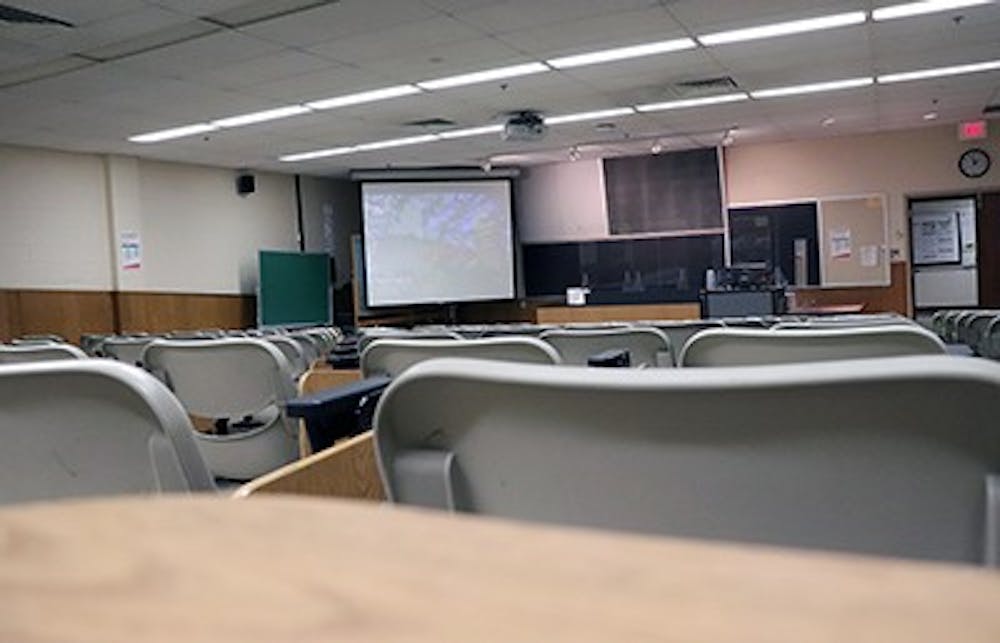Editor’s note: The interviews for this story were conducted in fall 2020.
The Pennsylvania State System of Higher Education (PASSHE) is undergoing a system redesign to increase the financial longevity of its schools. With this initiative, comes tough decisions from school administrators to determine how to meet directives and goals set by PASSHE officials.
One way officials are trying to increase financial sustainability is through retrenchment. Retrenchment is when letters are sent to faculty members informing them of their employment termination at the end of the academic year.
More than 100 tenured and tenure-track faculty members received retrenchment letters Oct. 30 and Dec. 1, according to Association of Pennsylvania State College and University Faculties (APSCUF) officials.
All state system universities are undergoing sustainability planning. PASSHE Chancellor Daniel Greenstein outlined ways university presidents could work on financial sustainability in February. Greenstein also called for PASSHE schools to return to faculty ratios that existed in 2010-11.
Officials at 10 of the 14 PASSHE schools announced the possibility of on-campus faculty layoffs caused by financial issues in spring 2020. Faculty members at Bloomsburg, California, Cheyney, Indiana, Mansfield, Millersville, Kutztown, Clarion, Edinboro and Lock Haven universities were in danger. Officials rescinded letters at Millersville, Kutztown and Bloomsburg, according to APSCUF communications Director Kathryn Morton.
Morton said the APSCUF contract with PASSHE requires a specific procedure with necessary criteria that must be met if there are threats of faculty layoffs. There are deadlines throughout the academic year at which faculty members must receive retrenchment letters based on seniority. She credits APSCUF and campus leadership for meeting with local administrations to find ways to meet financial goals without faculty layoffs.
However, the threat of retrenchment looms for some PASSHE faculty members. APSCUF President Jamie Martin explained how the health and social climate of the pandemic adds stress to faculty members who face the possibility of retrenchment.
“This is just going to be devastating to our state system and is going to be devastating to those universities,” Martin said. “It’ll decimate departments and it’s going to just be a horrible thing to do to faculty, where they’ll be losing their careers and their health care in the middle of a pandemic.”
While the faculty members worry for their jobs, they also worry for their students. Some PASSHE school officials are offering “teach outs” as potential solutions when faculty members are retrenched. These options would potentially allow any student who started in a major at a university to finish in the major and would not allow any additional students into the major after a cut-off date. Martin and Morton both questioned how “teach outs” could offer the same educational student experience if a department closes or retrenches the majority — if not all — of its faculty.
“What happens if they’re a sophomore, and they’re trying to complete their major,” Martin said. “And all of a sudden, the major is gone.
“If you have an entire political science department disappear, they discontinued the program. That in essence means that all of the faculty who are able to teach political science are gone,” Martin said.
Martin asked if students would have to change their majors to remain at their university or if they would need to transfer to another school to continue their desired education. She also shared concerns about students have difficulty getting classwork required for graduation and finding that their class sizes have increased beyond what they were expecting, especially in upper-level and skills courses.
The retrenchment letters arrive amid some PASSHE schools entering partnerships and integrations where faculty cuts are already a threat. If a PASSHE faculty member is retrenched, Martin said there is an opportunity preferential hiring at other PASSHE schools.
There is a clearing house website at which the state system posts job opportunities, but Morton noted, “There’s seven campuses with possibilities of layoffs, so that’s a lot of people flooding one [position].”
APSCUF’s hope is to minimize the impact of retrenchment and to save as many faculty member’s jobs as possible. But as U.S. News and World Report ranked Pennsylvania 50th in the nation in support for higher education in 2019, PASSHE continues to search for funding and ways to cut costs. Martin urged officials to keep the students as their priority when making these decisions.
Morton said student and alumni support can go a long way in advocating for programs at PASSHE universities.
“We all deserve the opportunity to pursue a higher education that’s affordable in Pennsylvania,” Morton said. “Everyone in Pennsylvania deserves that opportunity.”





The Slate welcomes thoughtful discussion on all of our stories, but please keep comments civil and on-topic. Read our full guidelines here.